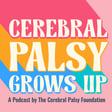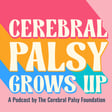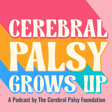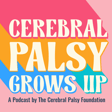
Episode 4: Zach Anner
Zach Anner is an award-winning comedian, author, and disability advocate known for his infectious humor, quick wit, and positive outlook on life. His unique blend of comedy and candid discussions about disability has earned him a dedicated following and helped challenge societal perceptions of disability.
Zach gained national recognition in 2010 when he appeared on the reality show Your OWN Show: Oprah's Search for the Next TV Star. With his hilarious audition video that quickly went viral, he captivated audiences and eventually won a show on the Oprah Winfrey Network (OWN) called Rollin' with Zach, where he traveled across the United States, showcasing his adventures from a wheelchair user's perspective.
In addition to his work on television, Zach is a prolific content creator. He has a popular YouTube channel where he shares comedy sketches, travelogues, and inspirational videos, many of which humorously and honestly explore his experiences as a person with a disability. His comedic web series, Have a Little Faith, featured interviews with people from different religious and spiritual backgrounds.
Zach's talents extend beyond the screen. In 2016, he published his memoir If at Birth You Don’t Succeed: My Adventures with Disaster and Destiny, a critically acclaimed and hilarious account of his life, filled with humorous anecdotes and reflections on overcoming challenges.
An outspoken advocate for disability rights, Zach uses his platform to promote accessibility, inclusion, and the importance of humor in addressing life's obstacles. His work has earned him a devoted fan base and numerous accolades, including a Daytime Emmy Award for his contributions to online media.
Today, Zach Anner continues to inspire and entertain audiences with his sharp comedic style and advocacy, demonstrating that a sense of humor can break barriers and foster greater understanding and acceptance for people with disabilities.
Follow
Cerebral Palsy Foundation on Instagram: @yourcpf
CPGU on Instagram: @cerebralpalsygrowsup
Alexa Orban on Instagram @lexi_orban
Zach Anner on Instagram @zach.anner
Credits
Host: Alexa Orban
Producers: Katy Gaastra, Kyle Khachadurian
Executive Producer: Ashley Harris Whaley, Rachel Byrne
Graphics: Briana Raucci



